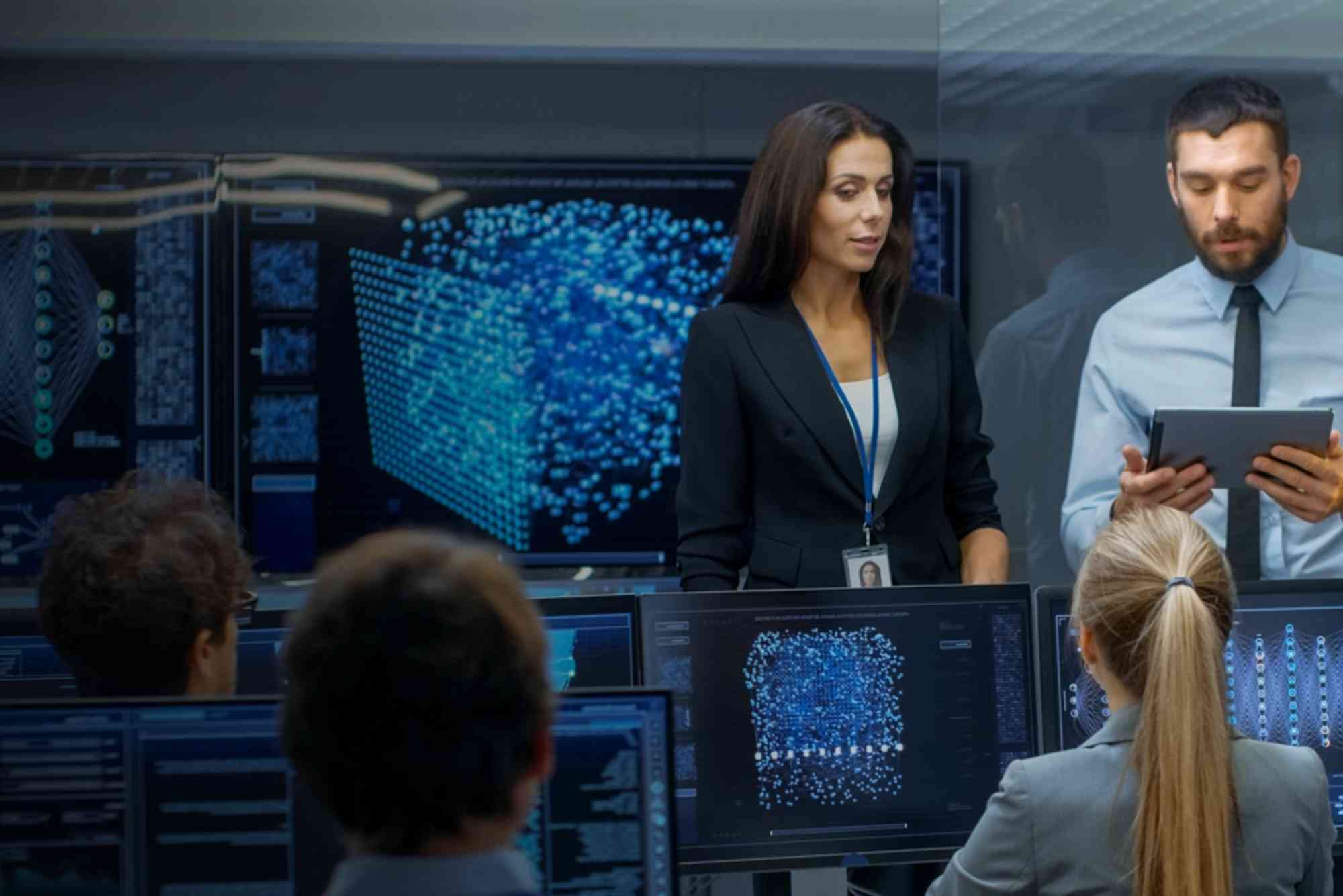AI-Driven Supply-Chain Control Towers Become Standard for Large Retailers
Market surge to $32.1 billion by 2030 as Walmart, Target lead adoption of autonomous supply chain intelligence
NEW YORK – November 19, 2025 – Artificial intelligence-powered supply chain control towers have transitioned from emerging technology to operational necessity among major retailers, with global market value projected to reach $32.14 billion by 2030, according to Grand View Research. The 23.0% compound annual growth rate reflects accelerated deployment across North America, where retailers invested heavily in autonomous systems to combat inventory volatility and meet same-day delivery promises to 93% of U.S. households.
The shift represents a fundamental rewiring of retail logistics. Modern control towers now integrate machine learning algorithms, natural language processing, and real-time IoT data streams to provide end-to-end visibility from supplier to shelf. Unlike traditional systems that simply report disruptions, today’s AI-driven towers autonomously evaluate risks, generate prescriptive recommendations, and execute corrective actions across complex distribution networks. Grand View Research data confirms that retail and consumer goods represent the fastest-growing end-use segment, with North American companies accounting for 37.49% of total market share in 2024. ([Source](https://www.grandviewresearch.com/industry-analysis/control-towers-market))
Walmart exemplifies this transformation, deploying AI agents capable of independent decision-making across its 4,700 U.S. stores and automated fulfillment network. The retailer’s capital expenditure of $20.8–$24.5 billion in 2025 allocated substantial resources toward AI-driven inventory management systems that predict stockouts before they occur. Walmart’s partnership with Symbotic, a $520 million robotics investment, automates trailer unloading and optimizes warehouse routing, reducing unit costs by an estimated 20% while processing 55% of fulfillment center volumes through automated facilities. Target has similarly embedded AI throughout its supply chain, leveraging predictive analytics to reduce clearance sales and improve inventory turnover ratios following its 2022 overstock crisis. The retailer recently modernized its core inventory management system with AI-powered demand forecasting that analyzes social media trends alongside historical sales data, enabling micro-level adjustments across 2,000 locations.
Inventory optimization delivers measurable financial returns. AI implementations reduce carrying costs by 15–25% while improving in-stock rates above 95%, directly addressing the $1.1 trillion annual cost of inventory distortion across global retail. Control towers equipped with natural language interfaces allow non-technical managers to query distribution performance using conversational prompts, democratizing data access and reducing decision latency from days to minutes. On-shelf availability monitoring, now standard in AI blueprints, flags phantom inventory at the SKU level, preventing lost sales that previously averaged 8% of revenue in large-format stores.
The technology arms race extends beyond inventory management. Retailers use control towers to orchestrate last-mile delivery across multiple carriers, dynamically rerouting shipments based on real-time traffic, weather, and capacity constraints. FourKites’ Intelligent Control Tower, launched in January 2025, demonstrates this evolution with AI agents that autonomously manage exceptions and recommend carrier switches, cutting transportation costs by 12% while boosting delivery reliability. As Target Chief Supply Chain Officer Gretchen McCarthy noted at Manifest 2025, “If you don’t have the right inventory coming through your supply chain, you’re going to gum up the works faster than anything,” underscoring the operational imperative driving adoption.
Despite rapid deployment, implementation challenges persist. Data quality issues plague 34% of enterprises, compromising visibility accuracy and limiting algorithm effectiveness. Legacy system integration requires average investments of $3.2 million per facility, creating barriers for mid-tier retailers. The AI skills gap also constrains growth, with 68% of supply chain executives reporting difficulty sourcing talent capable of managing autonomous systems. However, retail leaders view these hurdles as short-term transition costs versus long-term competitive risk.
Quote from CEO
“Supply chain control towers have become the central nervous system of retail operations,” said Sarah Chen, CEO of Luminate Supply Technologies. “What separates market leaders is not just adoption but the depth of AI integration—from predictive analytics that prevent disruptions to autonomous agents that execute decisions. Retailers without this capability are essentially flying blind in a market where customer expectations change by the hour.”
Market Data Highlights
– Global control tower market: $9.67 billion (2024) → $32.14 billion (2030)
– North American market share: 37.49% of global spending
– AI adoption rate among large retailers: 78% prioritize productivity gains through AI
– Inventory cost reduction: 15–25% through AI optimization
– Automated fulfillment: Walmart targets 65% store automation by 2026
About Luminate Supply Technologies
Luminate Supply Technologies provides AI-driven supply chain orchestration platforms to Fortune 500 retailers and manufacturers. Founded in 2019, the company’s cognitive control tower integrates demand forecasting, inventory optimization, and autonomous logistics management into a unified SaaS solution. Luminate serves clients across North America, Europe, and Asia-Pacific, processing over $45 billion in annual merchandise value through its AI engine.
Media Contact
Sarha Al-Mansoori
Director of Corporate Communications
G42
Email: media@g42.ai
Phone: +971 2555 0100
Website: www.g42.ai






















